The so-called Old Continent could just as easily be called the "Creepy Continent." After you check out these spots, you'll understand why.
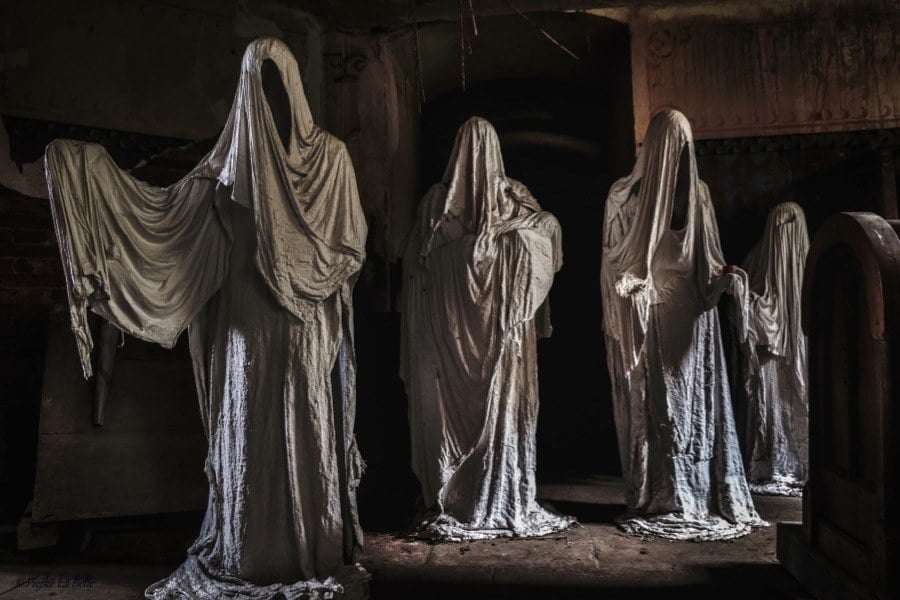
Source: Flickr.com
The heavy chains of superstition weigh on European history like the shackles of a Dickensian ghost. When a place is continuously inhabited for thousands of years, a few spooky stories will eventually get lodged into the collective memory.
Add to these a handful of cults that build their chapels with bones and skulls, and the result is a pretty creepy continent. Here are nine European sites that will make your hair stand on end.
The Capuchin Catacombs of Palermo, Italy
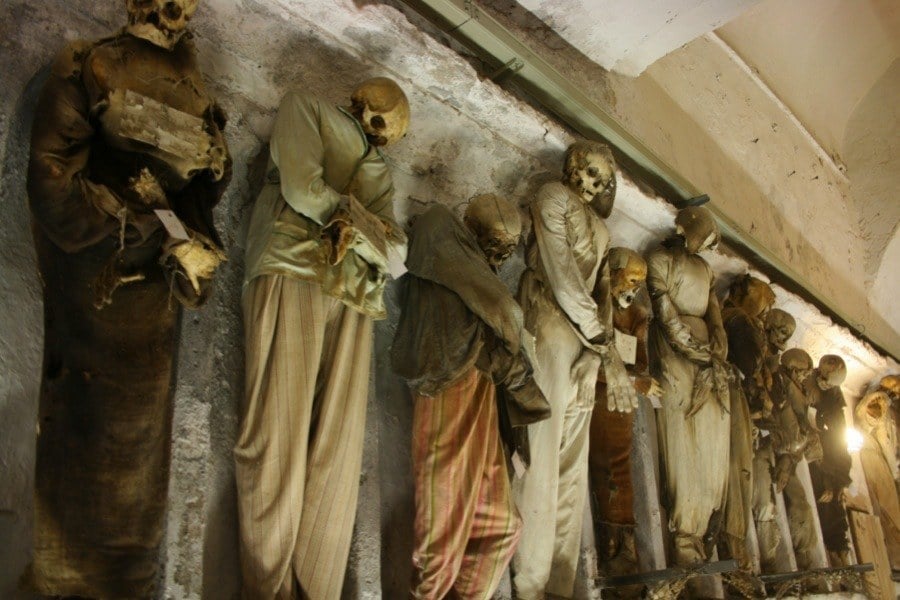
Source: Flickr.com
Eight thousand corpses populate this Sicilian city of the dead, including 1,200 mummies. Originally a catacomb for friars of the Capuchin monastic order, the process of preserving the bodies, through drying them and embalming techniques, attracted the attention of local elites. Dressed in their Sunday best, the residents here await the final resurrection alongside compatriots from the 16th to 20th centuries.
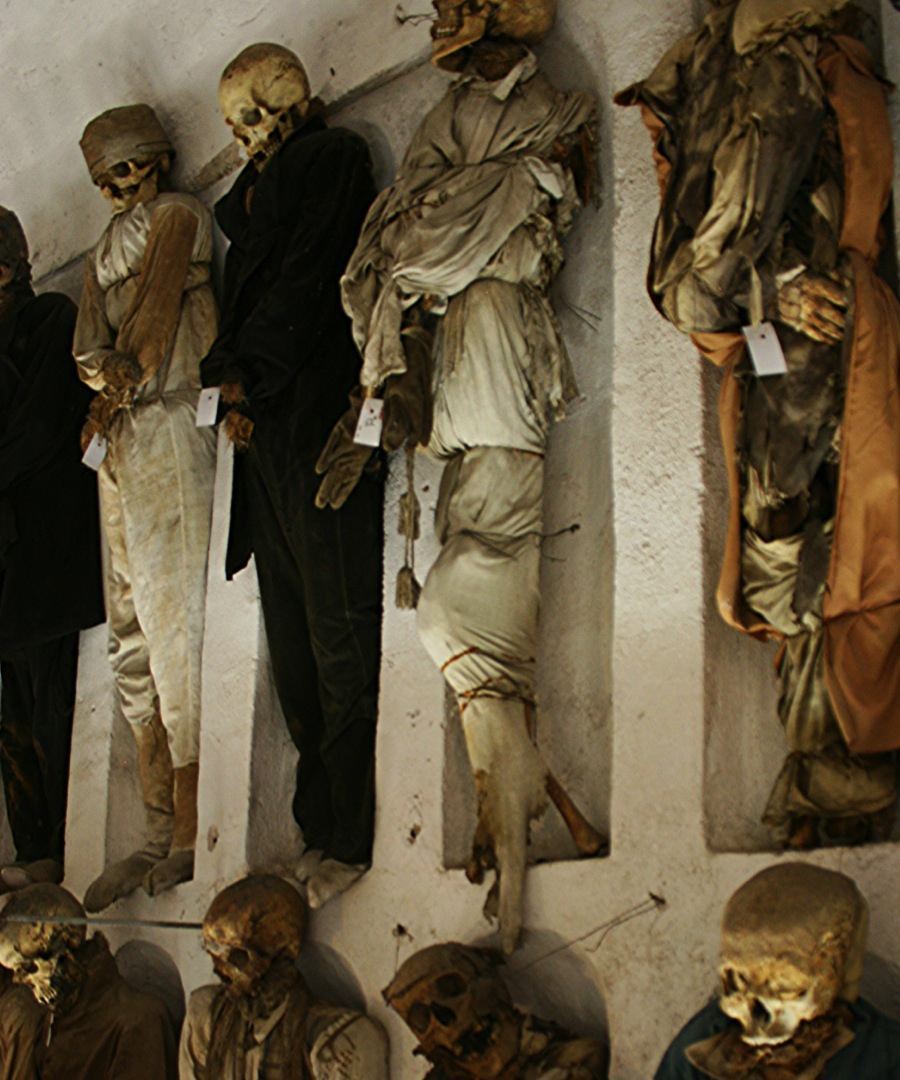
Source: Flickr.com
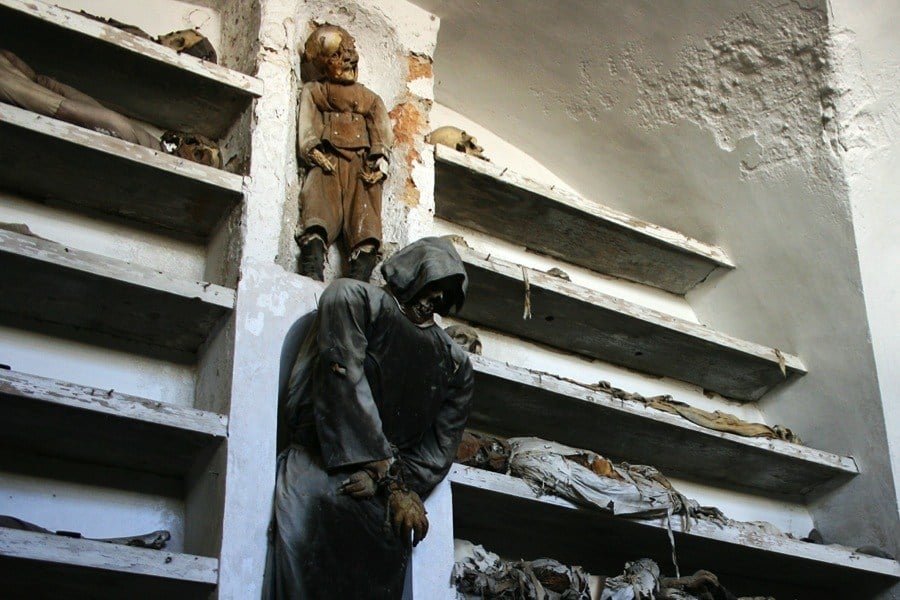
Source: Flickr.com
Church of Ghosts, Czech Republic
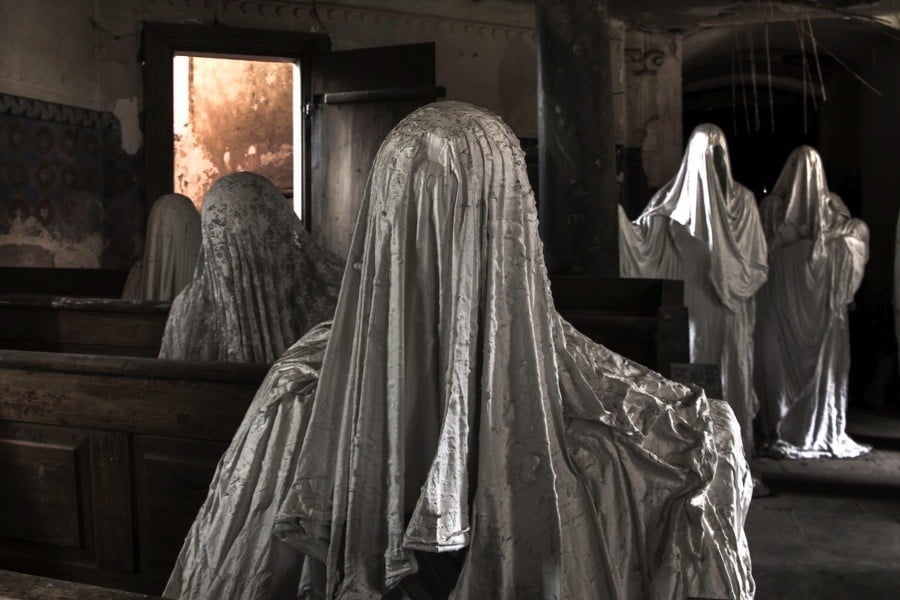
Source: Flickr.com
In the late 1960s, part of the church of St. Georges collapsed during a funeral in the small town of Lukova, Czech Republic. Afterwards, the building was condemned and neglected. The church, though, has received new “life” after local artist Jakub Hadrava filled the pews with a congregation of spectral parishioners. The wraiths are made of plaster, and some have internal lighting to up the freak-out factor.
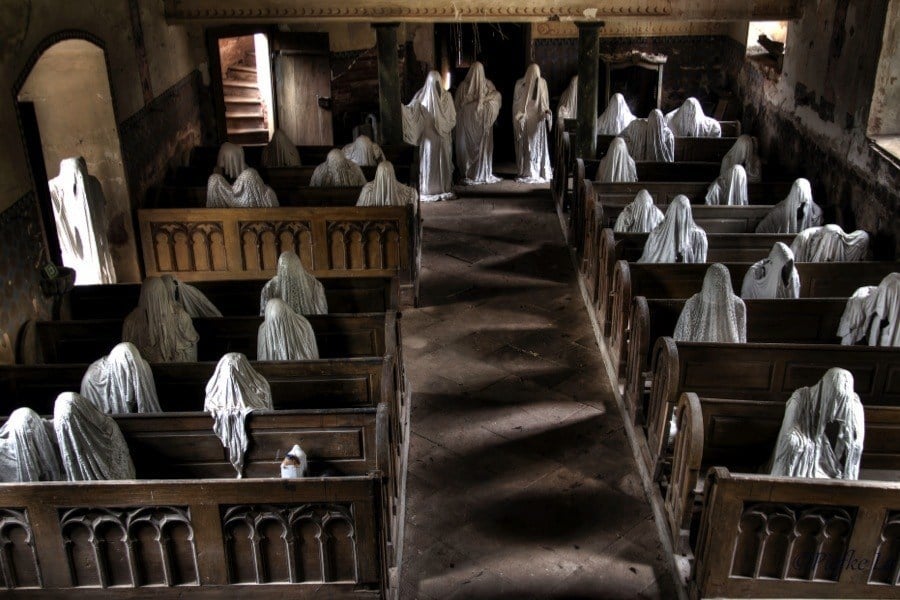
Source: Flickr.com
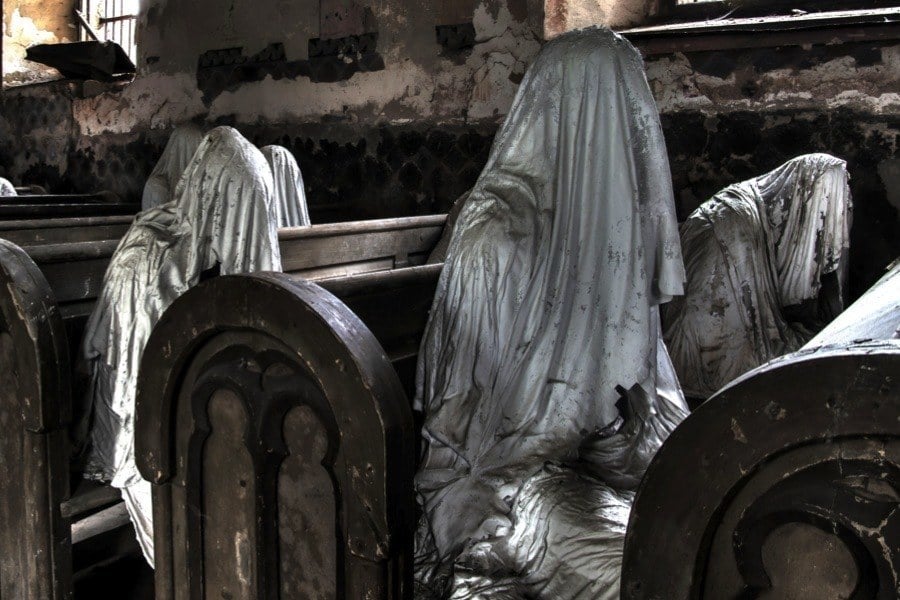
Source: Flickr.com
The Hallstatt Bonehouse, Austria
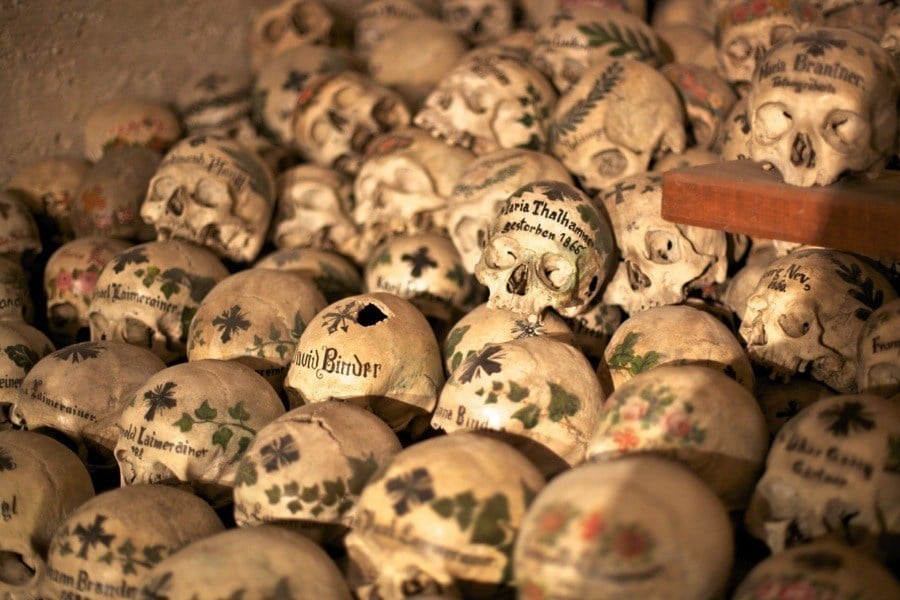
Source: Flickr.com
Cinched between steep hills and a large lake, the town of Hallstatt has never had much space for a cemetery. Nearly 900 years ago, the community began exhuming the dead every ten or fifteen years and moving the skeletal remains to the “bonehouse,” beinhaus in German, in the chapel of St. Michael. Today, over 600 hand-painted skulls line the walls of the chapel, each decorated with leaves or flowers, the name of the diseased, and the year of death.
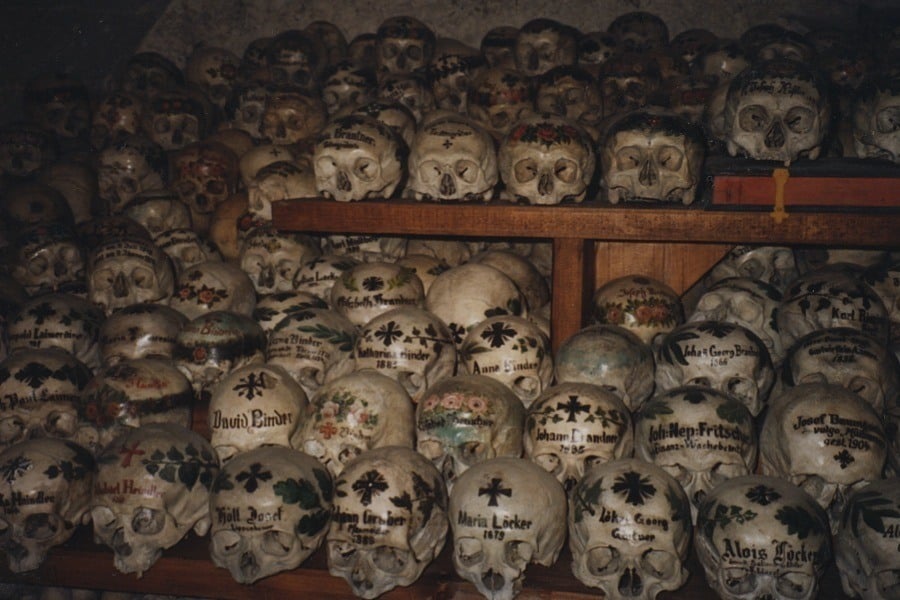
Source: Flickr.com
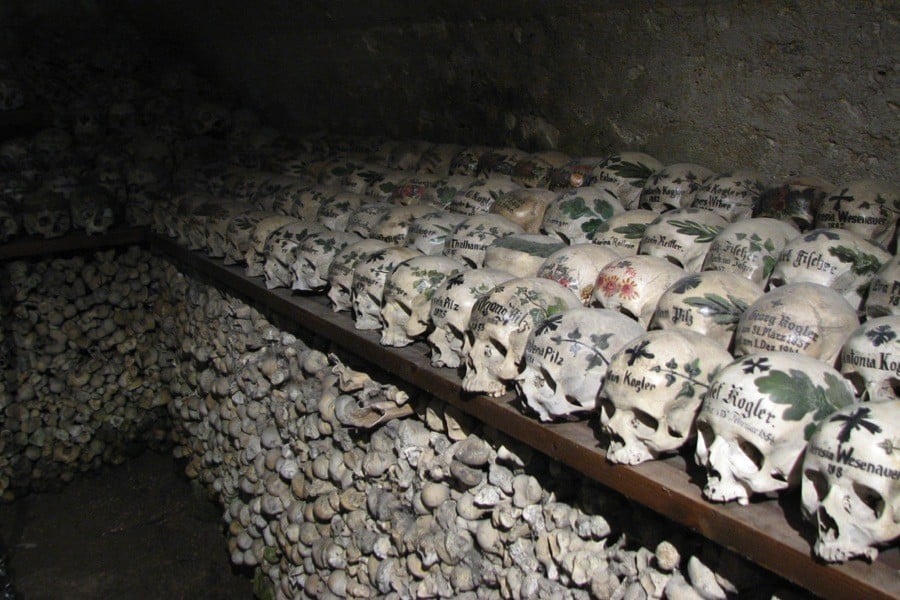
Source: Flickr.com
Hoia-Baciu Forest, Romania
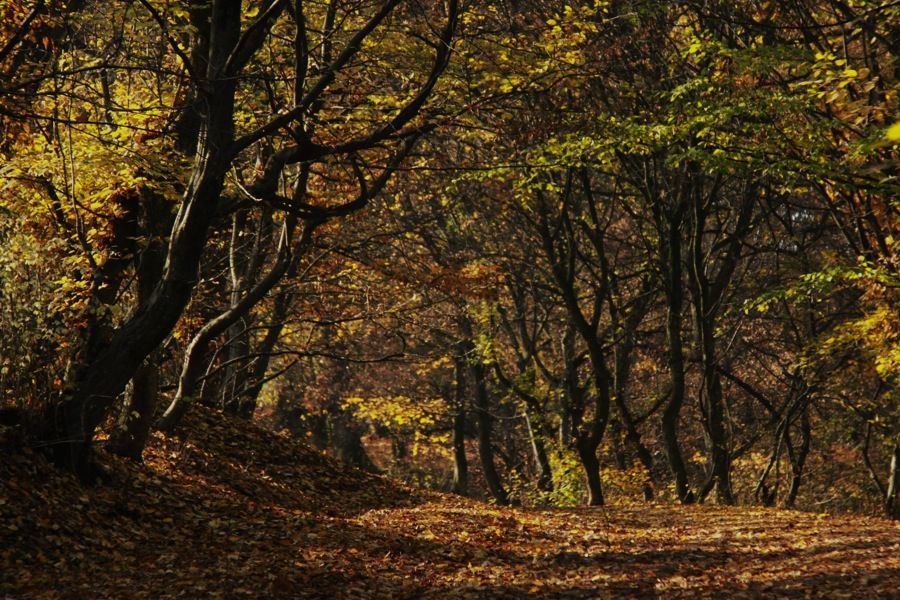
Source: Flickr.com
Known both as the “World’s Most Haunted Forest” and the “Bermuda Triangle of Romania,” the Hoia-Baciu forest is famous for everything from UFOs to strange disappearances. In a real-life horror story, a New Zealand tourist was recently electrocuted and severely burned when he touched a live electrical line deep in the woods.
According to media reports, his girlfriend in Dublin found out about the accident when she “woke up in the middle of the night and thought something was wrong,” googled her boyfriend’s name, and found a Romanian news report about the incident.
Hill of Crosses, Lithuania
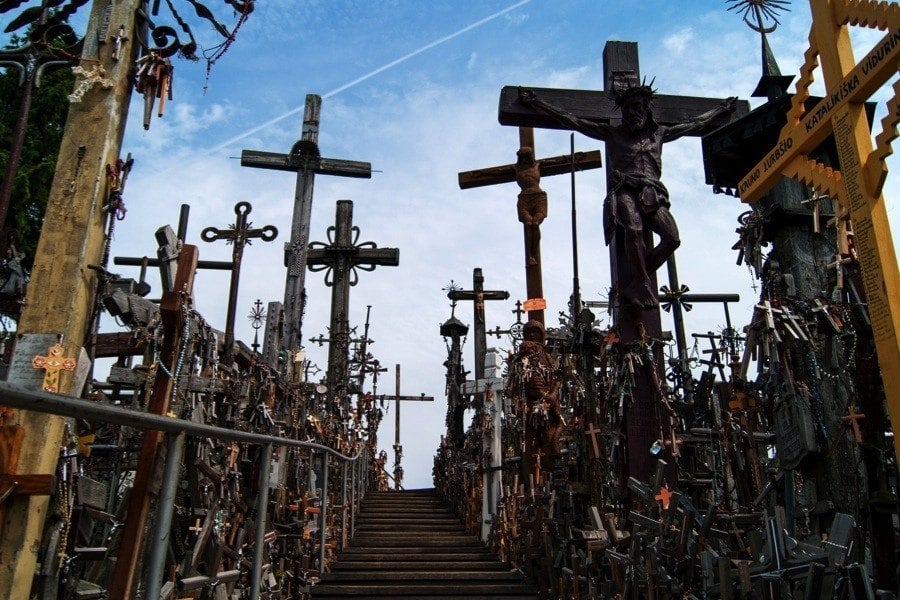
Source: Flickr.com
Looking something like a scene from Alejandro Jodorowsky’s cult classic The Holy Mountain, Lithuania’s Hill of Crosses is actually a symbol of protest, defiance, and survival. Threatened by the Russian Orthodox Church in the 19th century and Soviet communism in the 20th, Lithuanian Catholics have been traveling to this hill and depositing crosses since the 1830s. To pay tribute to this strange form of devotion, Pope John Paul II visited the site in 1993. Today, estimates put the number of crosses north of 100,000.
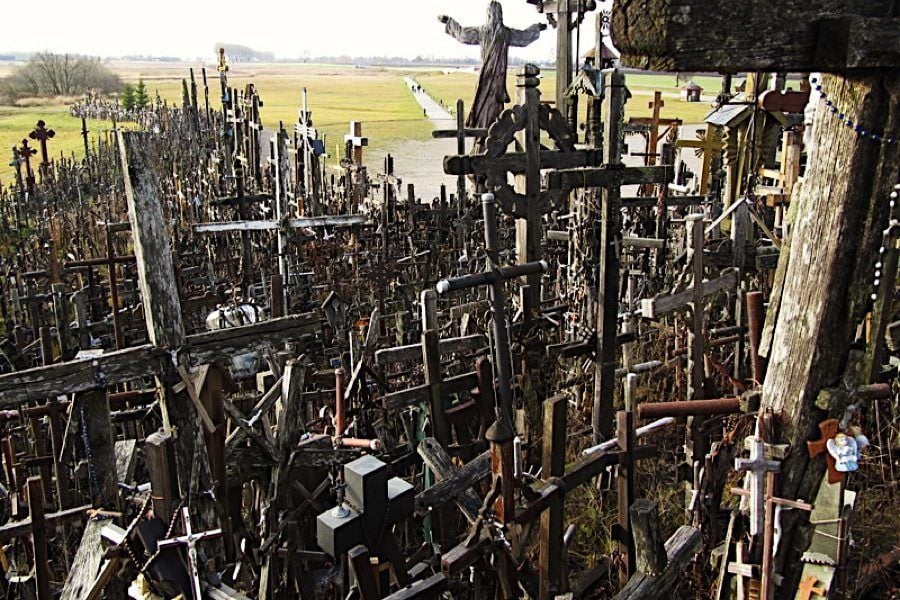
Source: Flickr.com
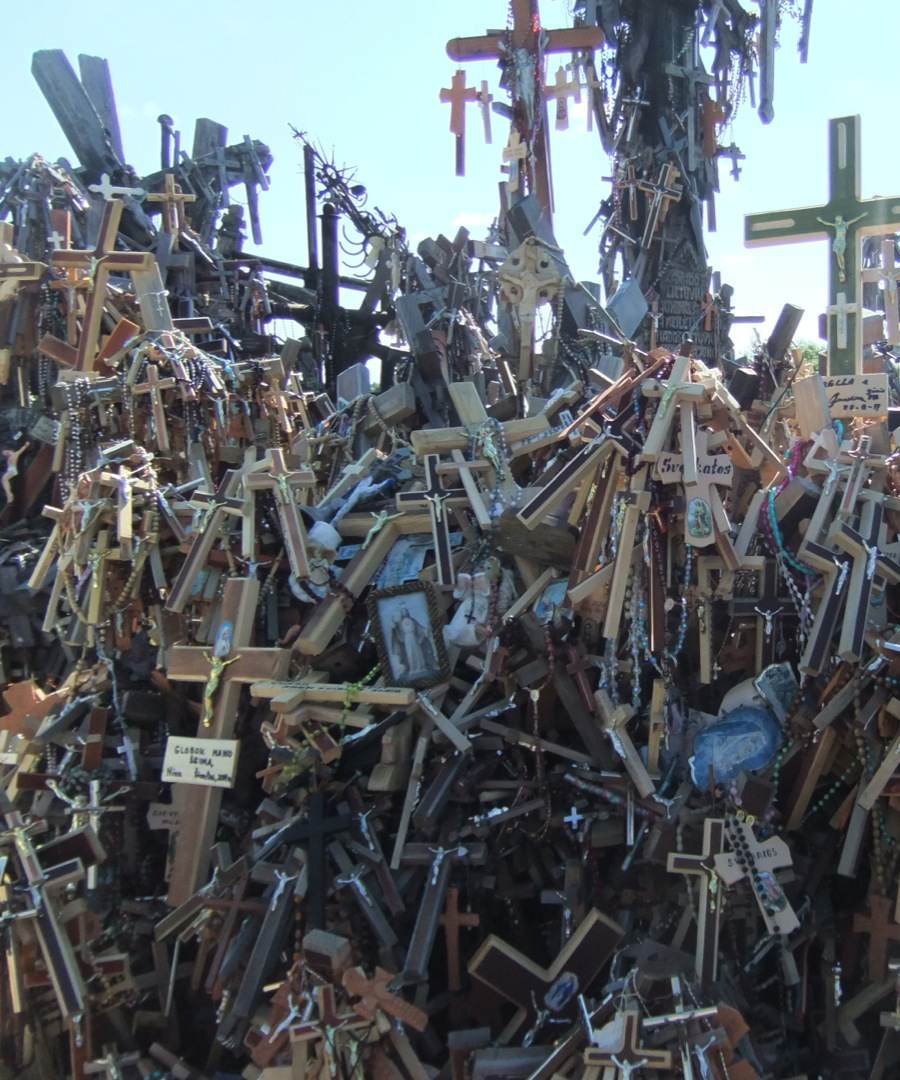
Source: Flickr.com
Edinburgh Castle, Scotland
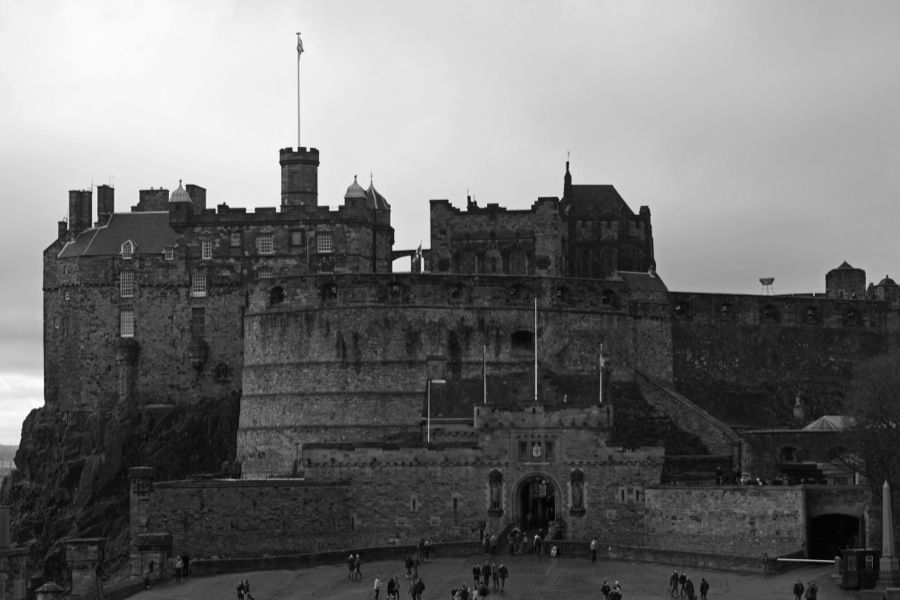
Source: Flickr.com
Some say the Scottish capital is the most haunted city in Europe, and if that’s so, then Edinburgh’s famous, 12th century castle would be the epicenter of all that paranormal activity.
The tunnels and dungeons of this royal fortress are believed to be visited by spectral musicians and the ghosts of the prisoners who perished at Edinburgh Castle over the centuries.
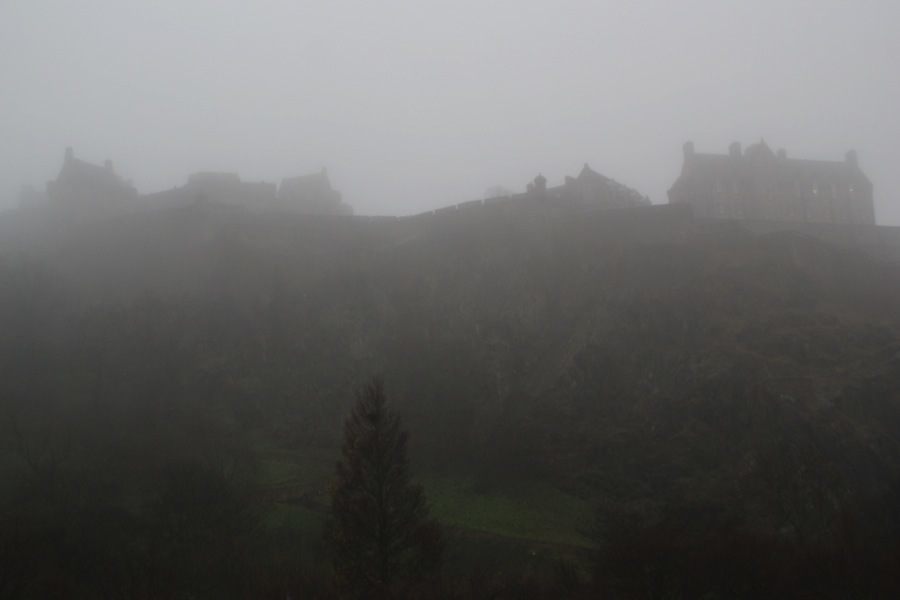
Source: Flickr.com
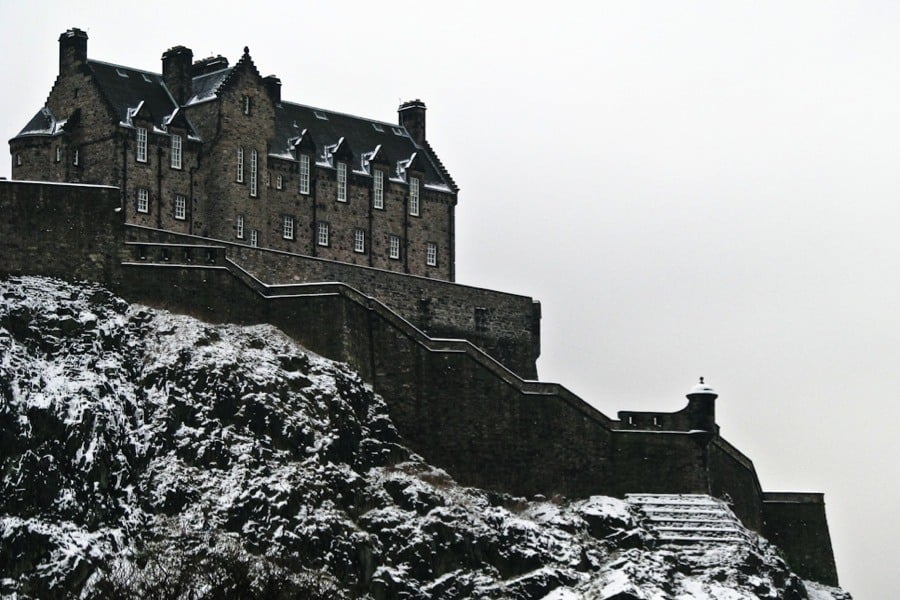
Source: Flickr.com
Cortijo Jurado, Spain
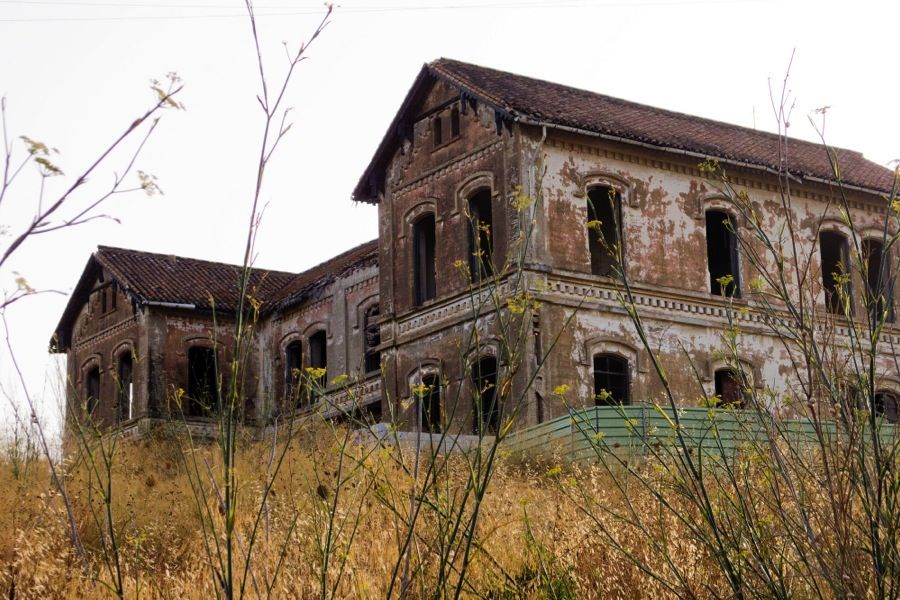
Source: Flickr.com
An abandoned mansion on a highway outside of Málaga, this Andalusian haunted house was built by a wealthy family in the 19th century. It is said that the family kidnapped teenage girls and young women and brought them to secret chambers in the basement for torture and murder. Some people report that they still hear the girls screaming when they visit the ragged property.
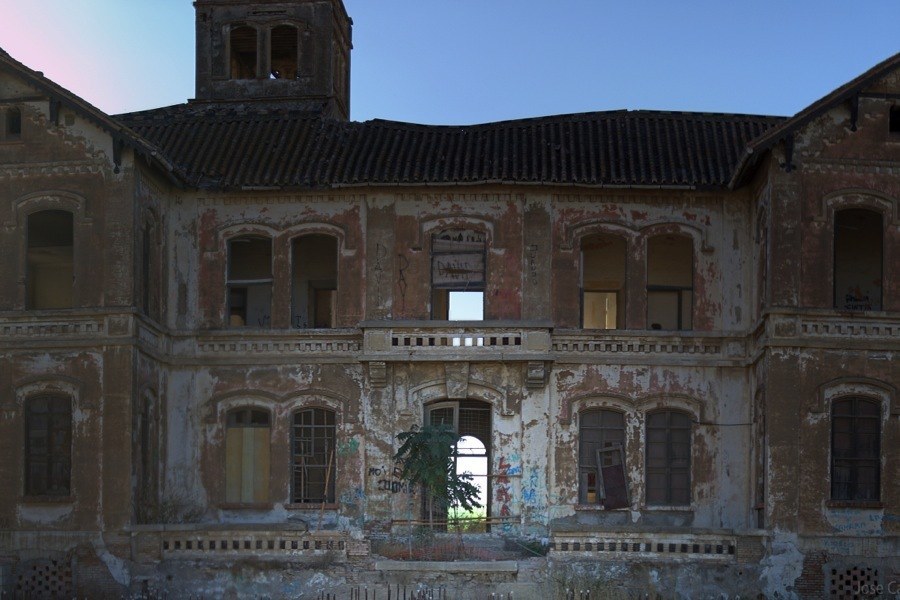
Source: Flickr.com
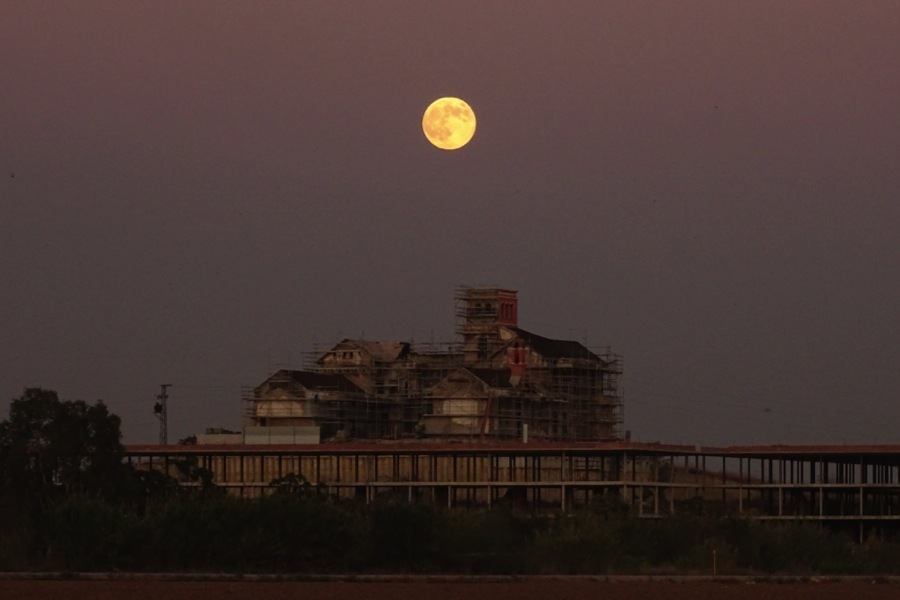
Source: Flickr.com
Sedlec Ossuary, Czech Republic
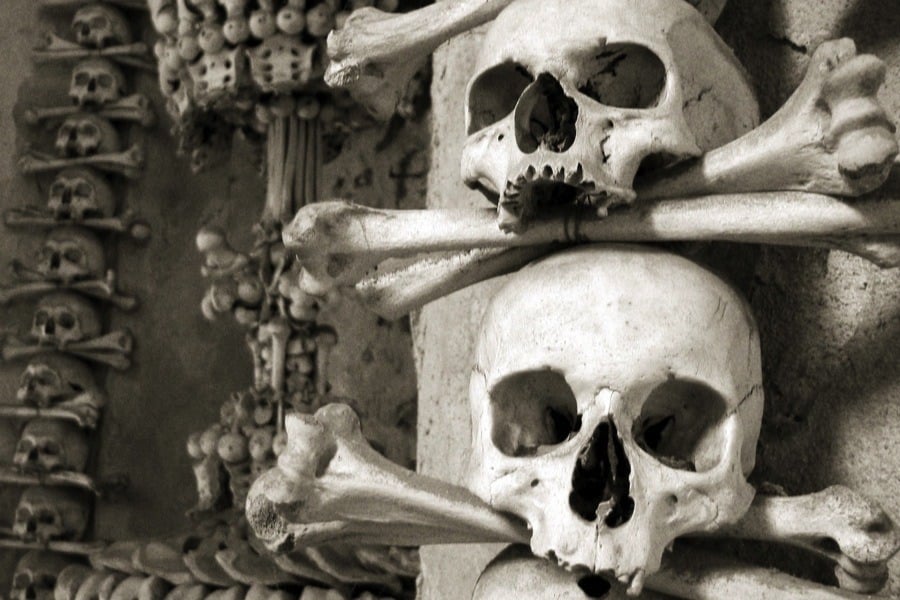
Source: Flickr.com
In the lower level of Gothic church set in the center of a cemetery, the ossuary at Sedlec contains the bones of around 50,000 people. Elaborate arrangements of bones and skulls wind up the walls and across the ceilings of this weird chapel, which is listed as a UNESCO World Heritage Site.
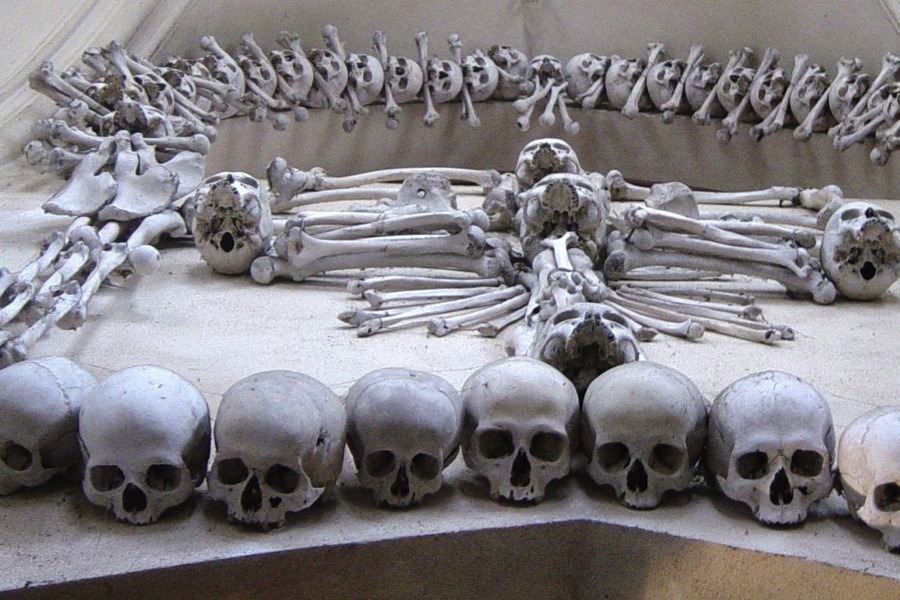
Source: Flickr.com
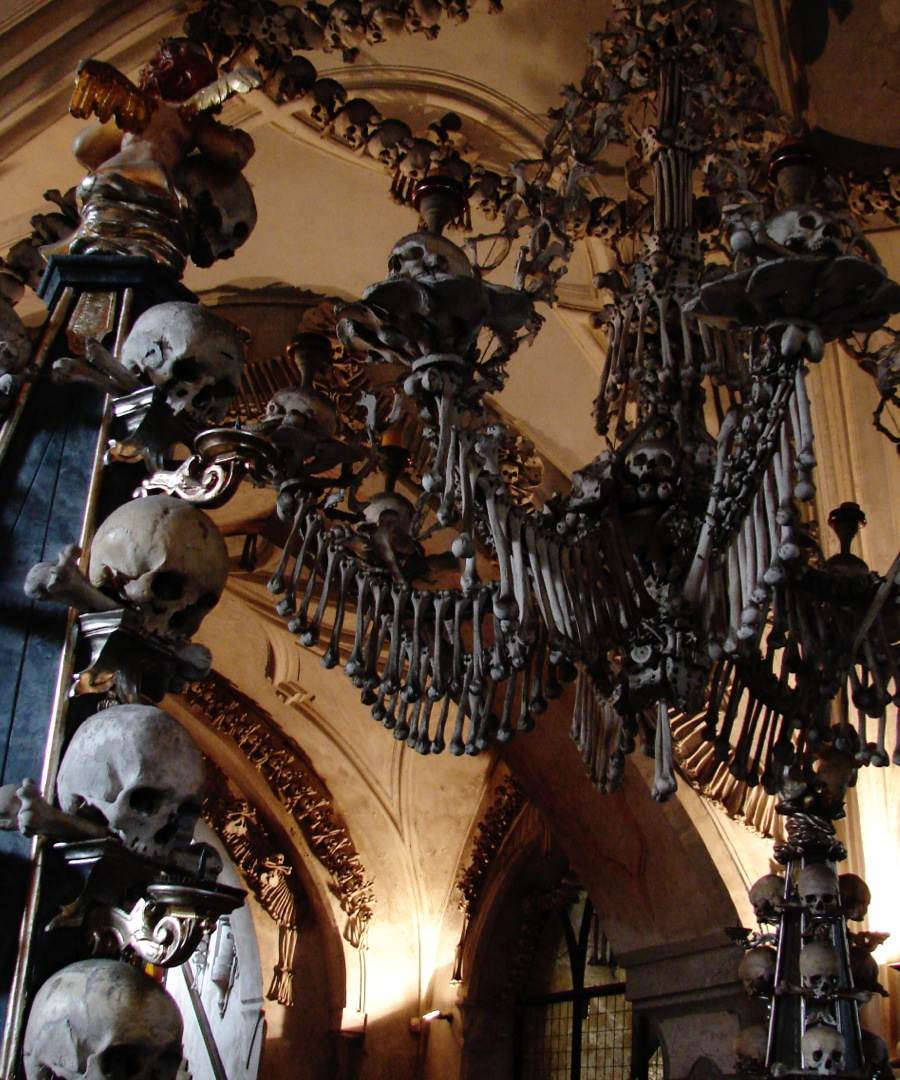
Source: Flickr.com
Bran Castle in Transylvania, Romania
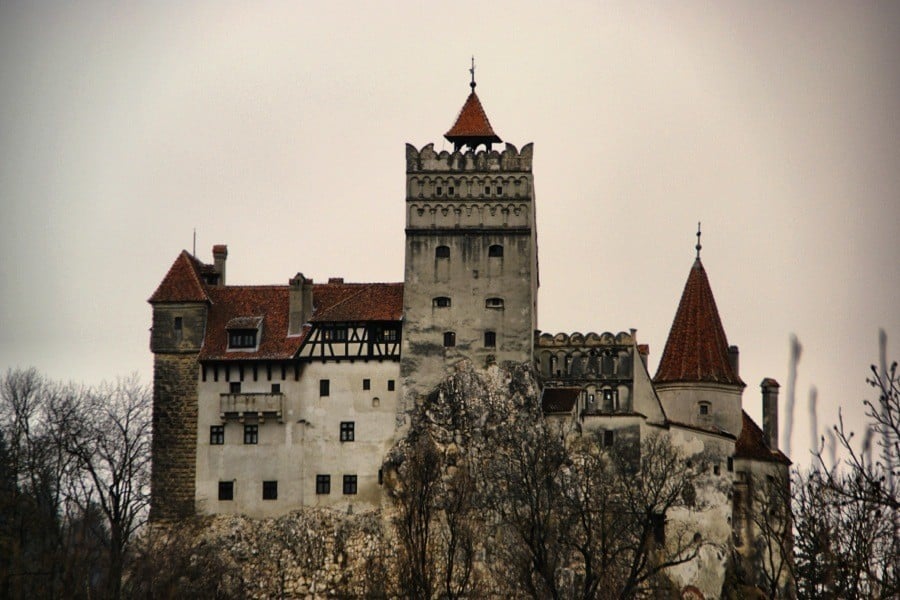
Source: Flickr.com
This is “Dracula’s castle,” or at least it has become so in the modern imagination of Romanian tourists. The original fortress here was built in 1212, but was then destroyed by Mongolian warriors under the command of Genghis Khan. The current stronghold went up in the late 1300s and has watched over this corner of Transylvania ever since.
Although Bram Stoker, the Dracula author, never visited Romania, some scholars believe he based his famous vampire’s residence on a wood carving of the Bran Castle in the 1865 book Transylvania: Its Product and Its People. Bran Castle certainly fits Stoker’s description of “a vast ruined castle, from whose tall black windows came no ray of light, and whose broken battlements showed a jagged line against the sky.”
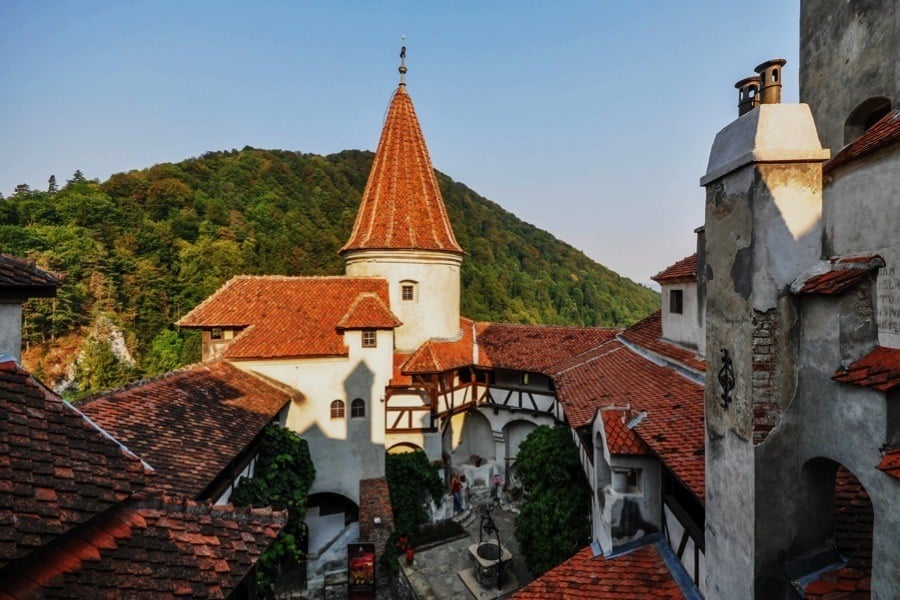
Source: Flickr.com
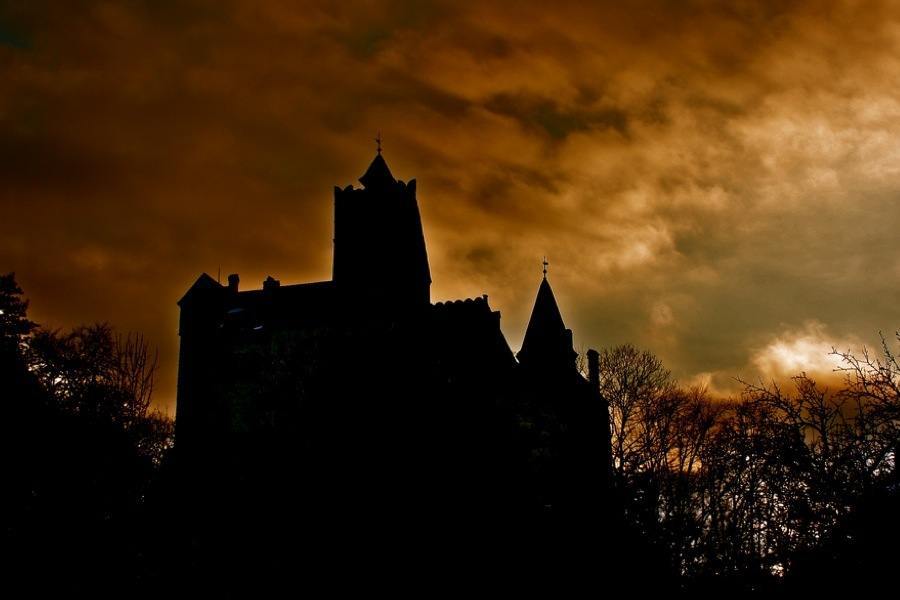
Source: Flickr.com





